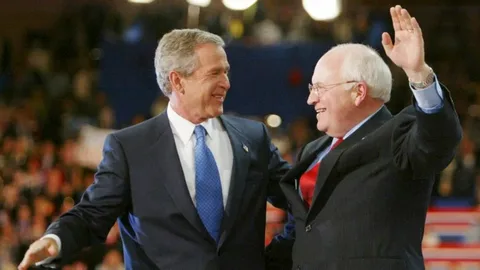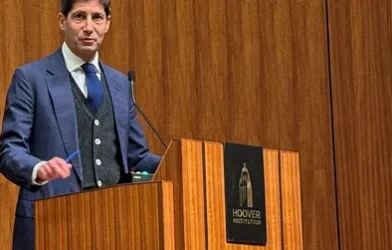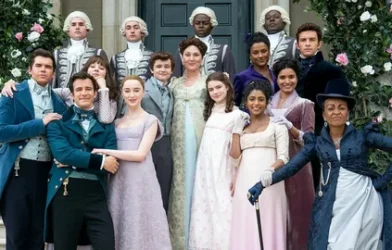Dick Cheney is one of the most influential and controversial political figures in modern American history. Known for his sharp intelligence, strong leadership, and behind-the-scenes power, Cheney played a major role in shaping U.S. domestic and foreign policies during the late twentieth and early twenty-first centuries. From his early political career to his time as Vice President under George W. Bush, Cheney’s actions and decisions have left a lasting impact on American politics and global affairs.
Early Life and Education
Richard Bruce Cheney, better known as Dick Cheney, was born on January 30, 1941, in Lincoln, Nebraska, and raised in Casper, Wyoming. He came from a modest background and showed early interest in politics and public service. Cheney attended Yale University but left before completing his degree. He later earned both his bachelor’s and master’s degrees in political science from the University of Wyoming.
During his youth, Cheney was not yet the hard-line conservative he would later become. He was more interested in understanding how government worked and what role leadership played in shaping a nation. His educational background gave him a strong foundation in political theory and public administration, which became vital in his later career.
Early Political Career
Cheney’s political journey began in the 1960s when he worked as an intern for Congressman William Steiger. His talent for policy analysis and strategic thinking quickly caught the attention of senior political leaders. He joined the Nixon administration and later became an important figure during Gerald Ford’s presidency, serving as the White House Chief of Staff from 1975 to 1977.
This position was crucial for Cheney’s career. It gave him firsthand experience in managing the executive branch and dealing with complex political challenges. He earned a reputation for being efficient, loyal, and exceptionally organized. Many in Washington began to view him as one of the smartest and most capable behind-the-scenes operators.
Role as Secretary of Defense
After a brief break from politics, Cheney returned to the national stage when President George H. W. Bush appointed him as Secretary of Defense in 1989. During his time in this role, Cheney managed one of the most successful military operations in American history – the Gulf War in 1991. The U.S.-led coalition quickly defeated Iraqi forces and liberated Kuwait, with minimal American casualties.
Cheney’s leadership during the war was praised by both allies and critics. He demonstrated a calm, strategic mindset and a deep understanding of military logistics. Under his guidance, the Department of Defense improved its efficiency and modernized many aspects of U.S. military strategy. This success significantly boosted his reputation as a capable and trustworthy leader.
Vice Presidency under George W. Bush
Dick Cheney’s most notable political chapter began in 2001 when he became the Vice President of the United States under President George W. Bush. His influence in the administration was unprecedented for a Vice President. Unlike many of his predecessors, Cheney was deeply involved in decision-making, especially concerning national security, defense, and energy policy.
After the tragic events of September 11, 2001, Cheney became one of the key architects of the U.S. response to terrorism. He strongly supported the invasion of Afghanistan to remove the Taliban and the war in Iraq to oust Saddam Hussein. Cheney argued that America had to act decisively to prevent future attacks, even if it meant taking controversial measures.
His stance on national security led to major policy shifts, including the creation of the Department of Homeland Security, expanded surveillance programs, and the use of enhanced interrogation techniques on terror suspects. These decisions sparked intense debate about the balance between security and civil liberties. Critics accused Cheney of overstepping constitutional boundaries, while supporters praised him for protecting the nation during a time of crisis.
Controversies and Criticism
Throughout his career, Cheney was often viewed as a polarizing figure. His involvement in the Iraq War remains one of the most debated aspects of his legacy. Many questioned the justification for the war and the accuracy of intelligence reports about weapons of mass destruction. The conflict caused long-term instability in the Middle East, and critics argued that Cheney’s policies contributed to those consequences.
Another point of controversy was Cheney’s connection to Halliburton, an energy company where he served as CEO before becoming Vice President. Halliburton received major government contracts during the Iraq War, leading to accusations of conflict of interest, although Cheney denied any wrongdoing.
Despite the criticism, Cheney remained firm in his beliefs. He often said that his decisions were based on protecting American interests and ensuring national security, regardless of public opinion.
Life After Politics
After leaving office in 2009, Cheney continued to play an active role in political discussions. He published his memoir, gave speeches, and remained vocal on issues related to national defense and foreign policy. His daughter, Liz Cheney, followed in his footsteps and became a prominent political figure in the U.S. Congress.
Cheney also faced serious health issues, including multiple heart attacks, but he continued to participate in political debates and share his views on the direction of the Republican Party and American politics.
Legacy and Influence
Dick Cheney’s legacy is complex and multifaceted. To his supporters, he is a symbol of strength, discipline, and decisive leadership. They credit him with helping to shape America’s response to terrorism and maintaining global stability. To his critics, he represents the dangers of excessive power and secretive decision-making.
Regardless of the differing opinions, Cheney’s influence on American politics cannot be denied. His strategic mind, political experience, and firm convictions made him one of the most powerful Vice Presidents in U.S. history.
Conclusion
Dick Cheney’s journey from a small-town boy in Wyoming to one of the most powerful men in the world is a story of ambition, intelligence, and determination. His career shaped key moments in modern history and continues to spark debate among historians and political analysts. Whether admired or criticized, Cheney’s name will remain an important part of America’s political narrative for generations to come.













Comments are closed